
- Mode2 Portable AC Charger
- Mode3 Ev Charging Cable
- Home AC Charger
- Commercial AC Charger
- Home DC Fast Charging Station
- Commercial DC Fast Charging Stat
- V2X Charger
- EV Charging Station Power Module
- Ev Charging Plugs
- Ev Charging Socket
- EV Charging Accessories
- On Borad Charger
Latest news
- Nissan Unveils Bidirectional Onboard C
- Milence Launches First Charging Hub in
- Norway Likely Delaying Electric Van De
- India Unveils Five-Year Plan to Introd
- Hyundai Collaborates with Canadian Bat
- LG Energy Solution to Provide Batterie
Contact us
- ADD: 4-9-4 Jinkai International No. 1230 Jinkai RD, North of Chongqing China, 401122
- TEL: 0086-23-63425659
- FAX: 0086-23-63013491
- E-mail: bake@senkumachinery.com


300A Electric Car J1772 CCS Type 1 EV Plug
- Rated: 300A 1000V DC
- Certificate: UL
- IP Level: TYPE 3R
- Mechanical lifespan: Plug and unplug ≥10000 times
- Product description: This 300A CCS1 EV plug type is essentially a J1772 connector with an added feature: two extra pins for DC fast chargers. The upper part of the plug, with the same five pins, handles AC charging and c
Product introduction
300A Electric Car J1772 CCS Type 1 EV Plug For 300KW DC Fast Charging Stations
The upper part of the plug, with the same five pins, handles AC charging and communication similarly to the J1772 plug. The additional two pins at the bottom enable drivers to charge at DC fast charging stations, offering more versatility than its J1772 counterpart.
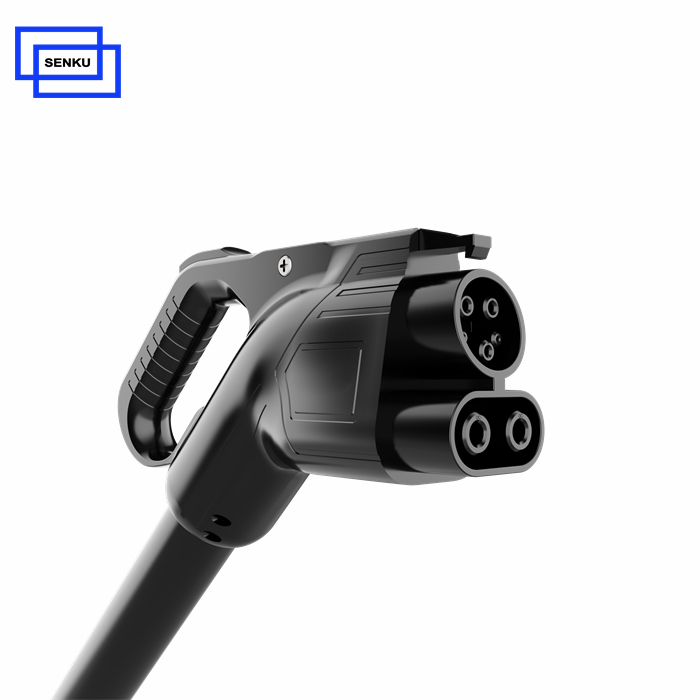
Electric Performance.
Rated current
300A
Operate voltage
1000V DC
Insulation resistance
>2000MΩ (DC1000V)
Terminal temperature rise.
<50K
Mechanical life
no-load plug in / plug out > 10000 times
Materia
Thermoplastic, Flame retardant grade UL94-0;
Pin: Cooper alloy,sliver + thermoplastic on the top
Operation Temp.
-30℃ ~ + 50℃
IP protection class
TYPE 3R
Standard
UL 2251 / SEA J1772
Certifications
UL Certification
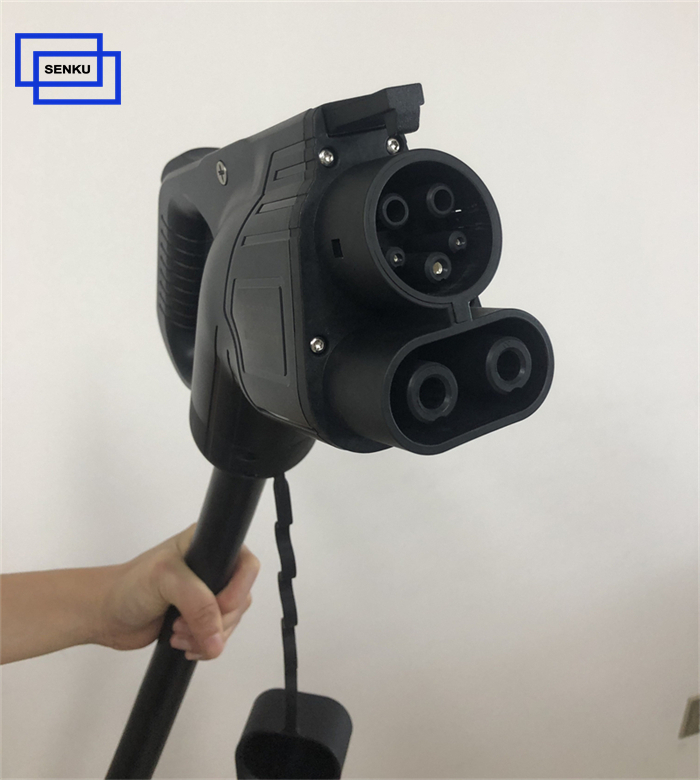
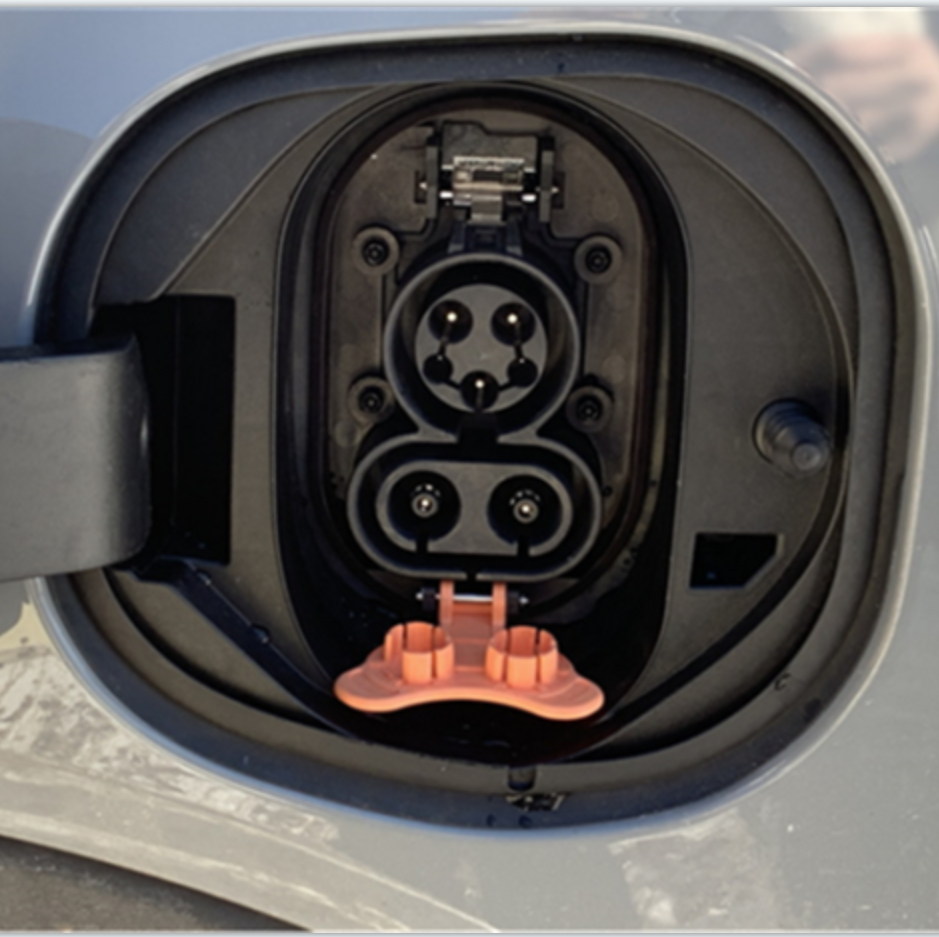
Difference of CCS1 and CCS2
CCS1 and CCS2 are two major standards for electric vehicle (EV) charging, both falling under the Combined Charging System (CCS) umbrella. As EV adoption grows, it’s important to understand the distinctions between these connectors to make informed decisions when purchasing an EV or using public charging stations.
Connector Design and Pin Configuration
The key difference between CCS1 and CCS2 lies in their connector designs and pin configurations. CCS1, also called Type 1 CCS, combines the J1772 (Type 1) connector for AC charging with a two-pin connector for DC fast charging. The J1772, which is standard for Level 1 and Level 2 AC charging in North America, has five pins: two for AC power, one for ground, one for proximity detection, and one for communication. The DC connector is situated below the J1772, allowing for both AC and DC power via a single port.
CCS2, also known as Type 2 CCS, is the dominant standard globally, particularly in Europe. It merges the Type 2 (Mennekes) connector for AC charging with a two-pin DC connector for fast charging. The Type 2 connector, which supports three-phase AC charging, has seven pins: three for AC power, one for neutral, one for ground, one for proximity detection, and one for communication. Like CCS1, the two DC pins are positioned beneath the AC connector, enabling both power types through one vehicle port.
On the flip side of the CCS1 vs CCS2 debate is the CCS2 connector, also known as Type 2 CCS. This is the predominant charging standard internationally. It combines the Type 2 (Mennekes) connector for AC and a two-pin DC connector for rapid power.
The Type 2 connector, which is the standard for AC charging in Europe, features seven pins: three for three-phase AC power, one for neutral, one for ground, one for proximity detection, and one for communication. Similar to CCS1, the additional two-pin DC connector is located below the Type 2, enabling both AC and DC to power through a single port on the vehicle.
Charging Speed
Both CCS1 and CCS2 support high-speed DC charging, with power levels reaching up to 350 kW. However, most public charging stations currently offer power in the range of 50 kW to 175 kW. This allows EVs to charge up to 80% in just 15 to 40 minutes, depending on the vehicle and the charger.
Main Applicable Countries
CCS1 is widely used in North America and South Korea, powering popular EV models such as the BMW i3, Chevrolet Bolt, and Hyundai Kona Electric. As these regions continue to expand their green energy infrastructure, CCS1 is expected to remain the standard.
CCS2, on the other hand, is the predominant charging standard in Europe, Australia, and parts of Asia. It is widely supported by a growing network of charging stations in these regions. Popular EV models like the Audi e-tron, Mercedes-Benz EQC, and Renault Zoe feature CCS2 ports, contributing to the widespread adoption of this standard.
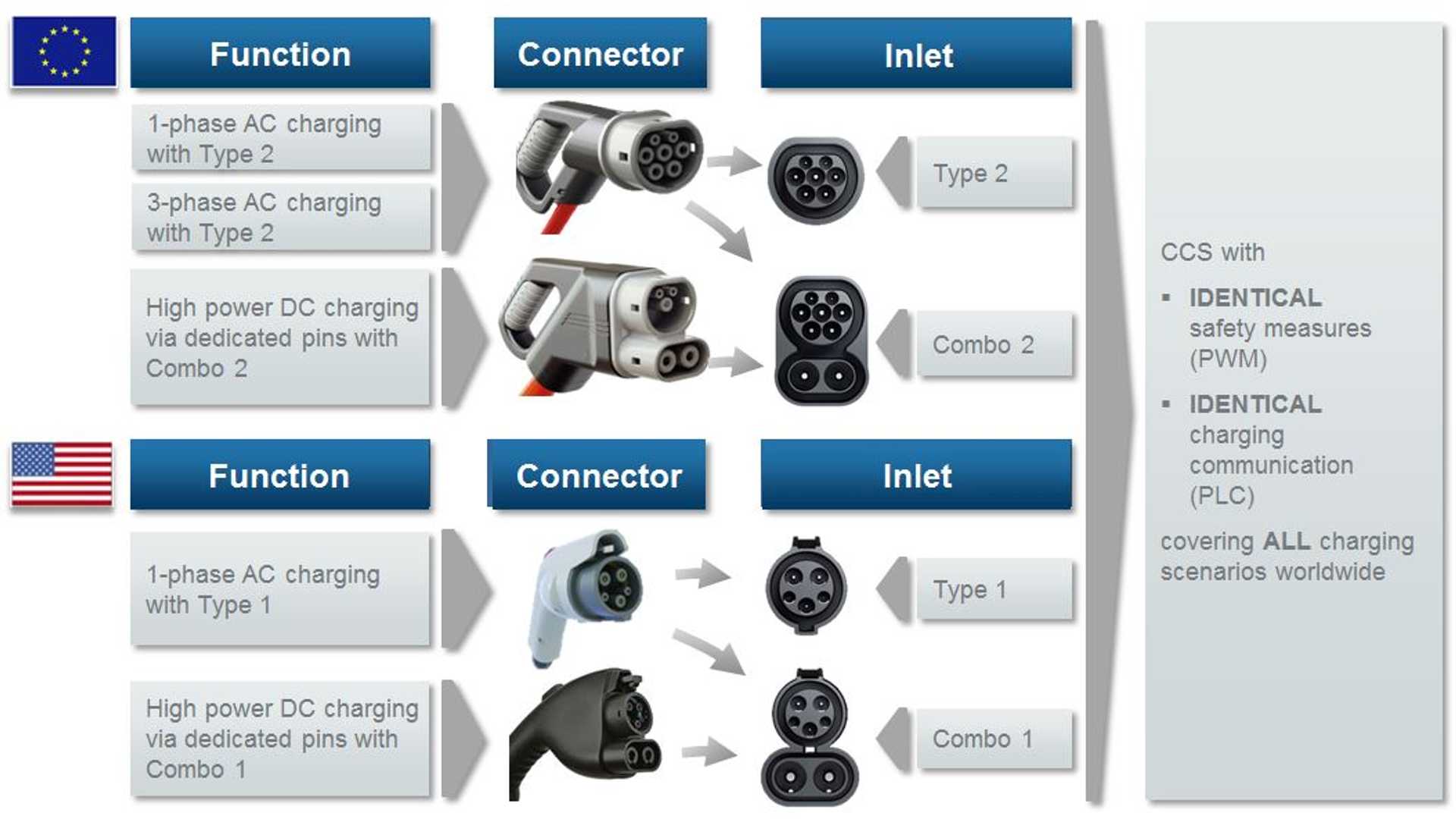
Hot tags: #ev plug #manufacturers #factories

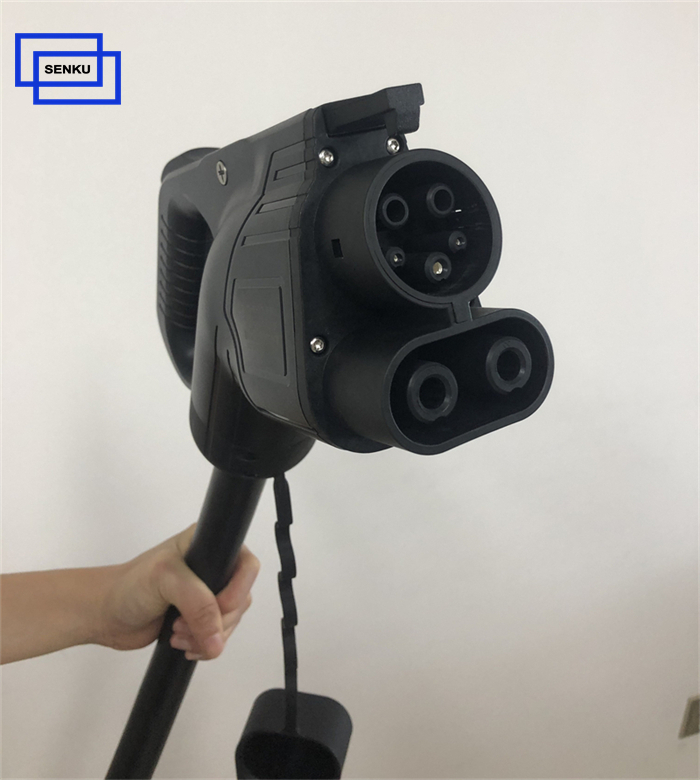
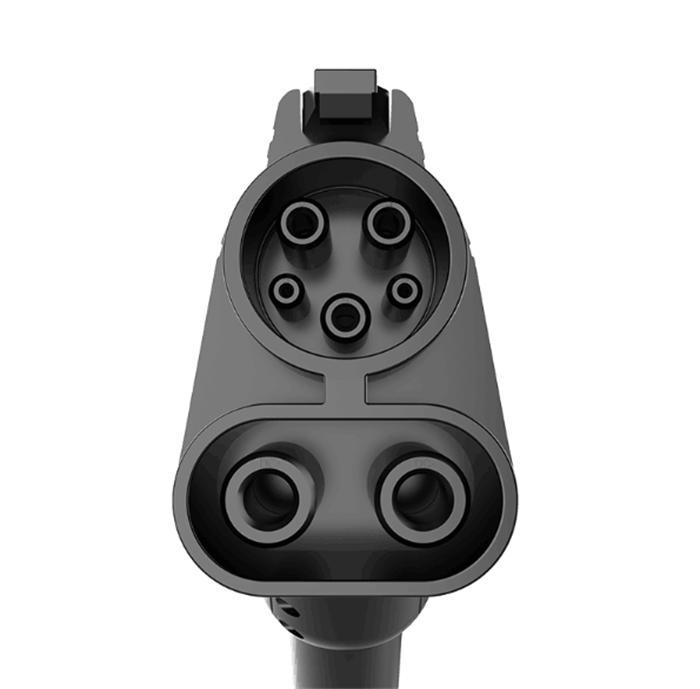



 Senku ,Bake
Senku ,Bake Senku
Senku